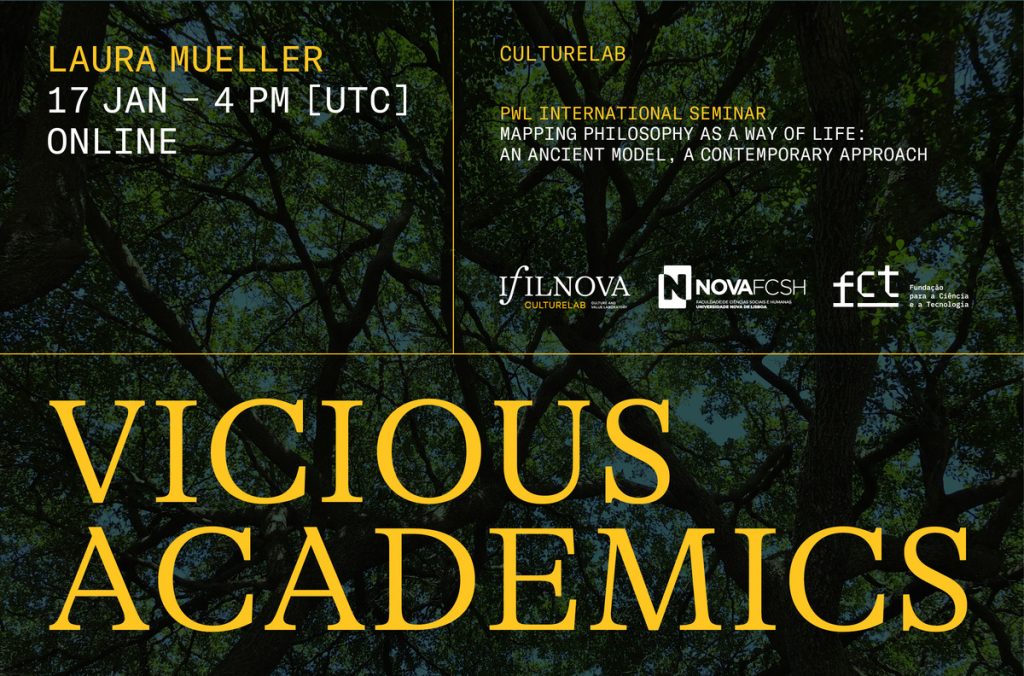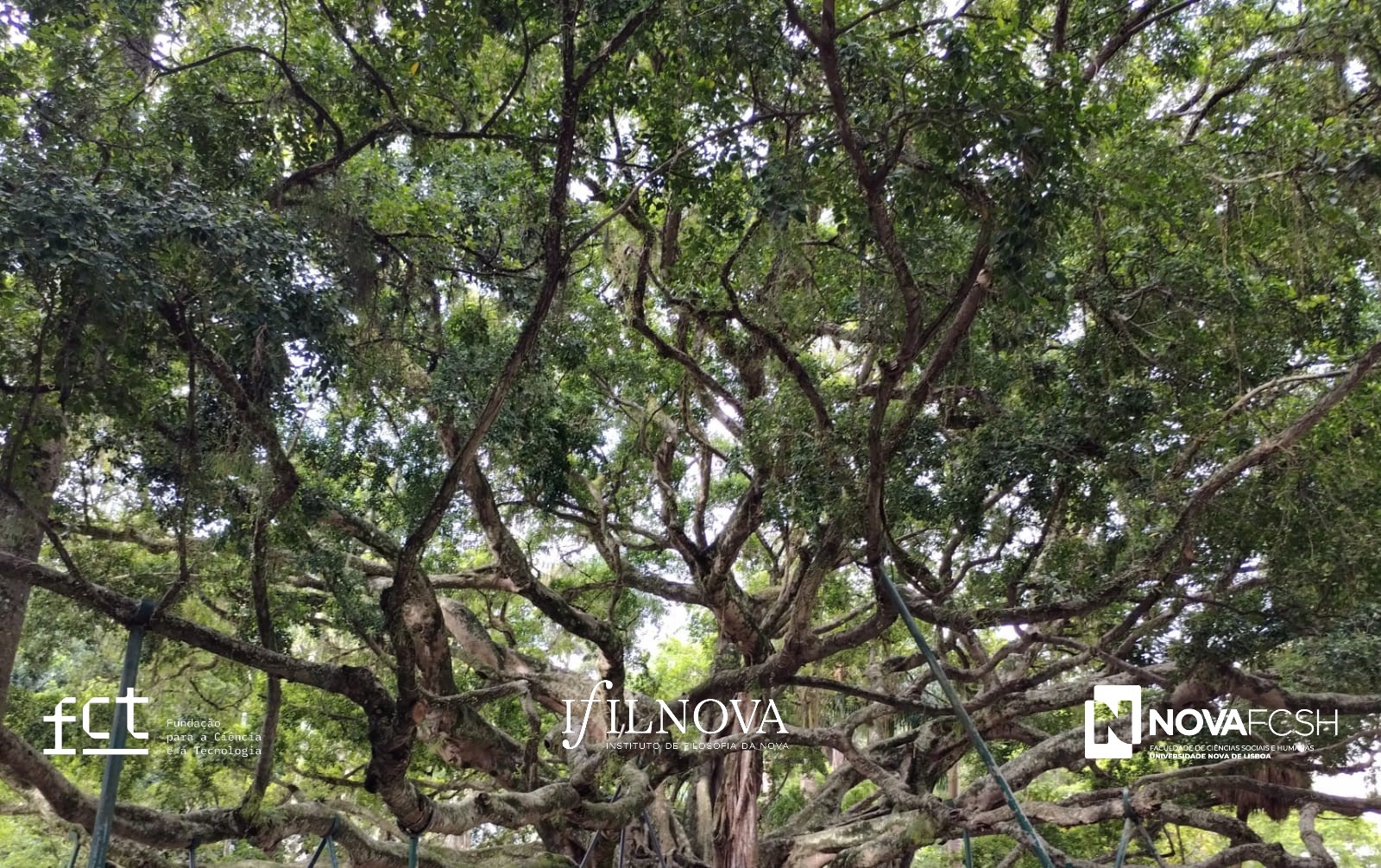LAURA MUELLER
“Vicious Academics”
January, 17 | 16h00 (UTC)
11h00 New York | 13h00 Brasília | 16h00 Lisbon | 17h00 Berlin | Other locations

Abstract
Traditionally speaking, philosophers who have written on education–especially university education–all share one thing in common: they view education as vital for some mix of self-cultivation, Bildung, democracy, education for “Life,” the production of excellent individuals, the production of moral individuals. Or, as Anna Julia Cooper so incisively yet elegantly asked of educational institutions: “what sort of men does it turn out? Does your system make boys and girls superficial and mechanical?” Whatever philosophers might mean by “excellent,” “human,” or “democratic,” educational institutions and the educational processes enacted therein are meant to produce good, moral, “more human” people. But, the idea that educators and educational institutions can accomplish such an important task for humanity implies that educational institutions and their educators are fit for the job. Faculty must be pedagogically sound at least, and morally sound as well at best. This also implies that the institutions in which faculty teach and research creates an environment for pedagogical–and, hopefully, moral–virtue. But, of course, the youths are not educated by angels with what Kant would call “holy wills”; nay, we are philosophers, but we are also human, to paraphrase Hume. While we strive for virtue, and while many of us think that philosophy is a therapeutic that fosters moral improvement in some way, we are also subject to vices, especially academic vices, that academic philosophy cultivates. The current structure of the university–the neoliberal university–does not provide an environment for educating for human and more excellence. In fact, the neoliberal university cultivates vices. Institutionalized academia has become a breeding ground for what we call the “vicious academic,” a professional academic who, whether they intend to or not, has become a creature of academic vices, such as flattery or bullshit, or metrics-mania. This environment limits the ethical agency of the individual, and in doing so, creates agents of vice that perpetuate the harms that formed them.
Bio
Laura J. Mueller is an Assistant Professor of Philosophy at West Texas A&M University. Her research interests include Philosophy of Education, Philosophy of Culture, and Philosophy as a Way of Life (PWL). Dr. Mueller’s research presents education as a process that both creates and sustains culture, as well as a process of self-cultivation – including moral cultivation. As such, she focuses on the relationship between pedagogy and personhood, and education, community, and cultural values. She explores various theories and practices that embrace education as a fundamentally transformative process, as part of PWL. Trained in the history of philosophy, her interests largely veer towards Modern philosophy and pragmatism. In addition to pedagogical interests, she also focuses on ways in which institutions (such as neoliberal universities) are obstacles to ethical development and PWL. She has contributed to collections such as Philosophy of Culture as Theory, Method, and Way of Life (Brill, 2022), The Cultural Power of Personal Objects: Traditional Accounts and New Perspectives (SUNY, 2021), and The Person at the Crossroads: A Philosophical Approach (Vernon, 2020). As part of her research in PWL, she is a certified Logic-Based Therapy and Consultation Practitioner, through the Logic-Based Therapy and Consultation Institute. She is also an editor for Eidos: A Journal for Philosophy of Culture, and a Fellow of the American Institute for Philosophical and Cultural Thought.
Registration required via email to mapping.pwl@gmail.com
